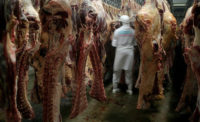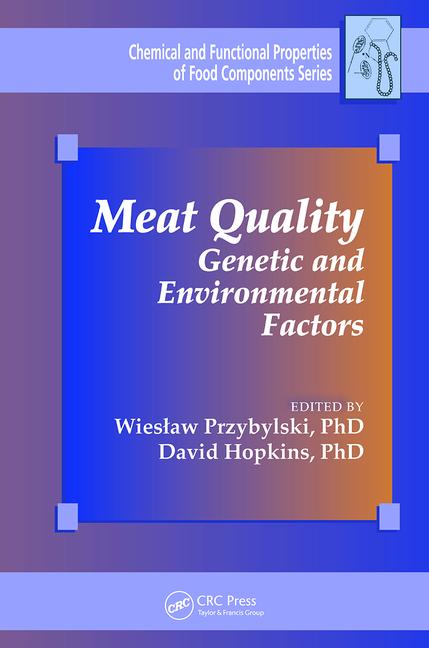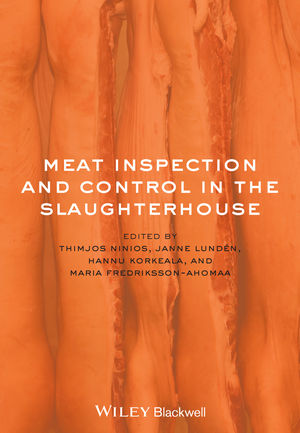Regulations & Legislation
FSIS, FDA to jointly regulate cell-based meat

Cell-culture technology will generate more headlines than protein for the foreseeable future. It is impossible to ignore the attention that the technology has garnered in the popular press and in the food and agriculture sector. Some farmers and ranchers view it as a mortal threat to their livelihood whereas some proponents tout it as a cure for animal welfare and environmental issues.
The reality is less extreme.
Although the products may appeal to consumers who have misgivings over consuming meat, the lab-grown products are not expected to displace a significant share of farm-raised meat and poultry on the marketplace. We are a long way off from seeing products that can mimic the nuanced texture and marbling of a ribeye steak, but we can expect to see cell-cultured burgers and chicken nuggets at high-end grocery stores in a few years.
One of the most contentious facets of the debate surrounding the growing cell-culture meat industry is determining which federal agency or agencies will regulate the products. This will determine how the technology will be regulated to ensure consumers are safe. Additionally, the choice of agency will affect how product labels are regulated and the product names that will be allowed.
This issue was pushed to the forefront by a petition filed by the U.S. Cattlemen’s Association (USCA) in February 2018. In the petition, USCA asks the U.S. Department of Agriculture’s Food Safety and Inspection Service (FSIS) to amend its labeling policies to proscribe the use of the term “beef” or “meat” when labeling cell-cultured products. USCA’s petition reflects the experience of the folks in the dairy industry who wished the Food and Drug Administration (FDA) had taken a firmer stance in enforcing standards of identity with respect to plant-based “milks.”
In October, FSIS and FDA jointly hosted a public meeting to gather input from stakeholders on how the agencies should approach regulation of cell-cultured products. Several cell-based startups supported granting FDA sole jurisdiction over safety and labeling decisions. In contrast, many of the beef producers in attendance rallied behind handing over full authority to FSIS. Splitting the middle, the North American Meat Institute and Memphis Meats, a cultured-meat startup with backing from Tyson and Cargill, suggested the agencies both have a role to play in regulating cell-cultured proteins.
On Nov. 16, 2018, FDA and FSIS issued a joint statement announcing an outline of the Trump Administration’s plan to regulate the technology. Instead of placing all the responsibility with one agency, the plan is for FDA and FSIS to regulate different aspects of the products. Specifically, FDA will oversee the initial stages of production for lab-grown products, including collecting cells from source animals, storage and cell growth.
Next, the Trump Administration has suggested FSIS should regulate the production and processing of cell-culture products as well as the labeling. If this plan is finalized, FSIS will be responsible for regulating producers to ensure the products are wholesome and free of pathogens. Also, FSIS will set the rules for what the products can be called.
This proposal plays to both agencies’ strengths. FDA has extensive experience in regulating cell-culture technology for medical applications, such as biologics. Also, FDA typically has responsibility for evaluating and approving new food ingredients before they can go into the human food supply. Similarly, FSIS has extensive experience in regulating meat and poultry processors for compliance with food safety and labeling regulations.
Perhaps the most controversial aspect of the debate on animal-derived cell-culture technology is the product labeling. Livestock and poultry producers are rightly concerned that such products could be labeled in a manner that sheds an unfavorable light on meat and poultry products. Proponents of lab-grown products have often used the term “clean meat” to describe their products, inferring that their products are cleaner, safer and have a smaller environmental footprint. On the other hand, many in the livestock sector refer to the cultured products as “fake meat” or “synthetic meat;” they haven’t forgotten what happened with plant-based “milks.”
With labeling under FSIS control, every product label would have to be pre-approved by the agency to ensure it is truthful and not misleading. This will rein in companies that would otherwise get creative in describing their product or distinguishing it from conventionally produced proteins. FSIS is likely to disappoint some farmers and ranchers who would prefer to prohibit using the term “beef” or “meat” to describe lab-grown products, but I predict the agency will require labeling that will clearly identify these products as “cultured” or “cell-based.” NP
Looking for a reprint of this article?
From high-res PDFs to custom plaques, order your copy today!








